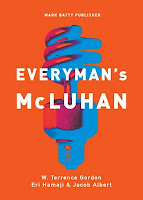THE SUMMER OF OUR DISCONTENT
Stealing from Shakespeare, now certainly is – according to formal polls and an informal consensus among the people I regularly converse with – “the summer of our discontent.”
 |
| First Folio of Shakespeare's Richard the Third -- the opening line of which is "Now is the winter of our discontent ..." |
Economic fears are weighing heavily on Americans, with a large majority saying the United States is on the wrong track and nearly half believing the worst is yet to come. A Reuters/Ipsos poll formalized that view last Wednesday (as if we might not have known.)
The poll reflects growing anxiety about the U.S. economy and frustration with Washington after a narrowly averted government default, a credit rating downgrade by Standard & Poor's, a stock market dive and a stubbornly high jobless rate.
It concludes that 73 percent of Americans believe the United States is "off on the wrong track" with 47 percent believing “the worst is yet to come.”
On the wrong track. Yes, but … Trains on the wrong track can’t be redirected to the right track all that easily.
Perhaps, in part, because we, the semi-affluent, live in an auto-dominated, GPS-guided world of interconnected roadways we seem to have adopted the mindset that, when we miss our exit, we can easily follow mechano-voice instructions to “Reverse directions when able.”
It ain’t that easy, my friend.
And as for “What’s to come …” Waiting for “others” to take action and right things is short-sighted and will cost you dearly.
A bit of old-timey folk wisdom points out that “You can’t change the past, but you can ruin today by worrying about the future.”
But you shouldn’t be totally passive either. Worry; just not to distraction. Better to invest some energy today in being concerned about the future and acting now to influence it.
And, in my not particularly humble opinion, many of us mistake the increasingly popular commotion of “social networking” as “activity” when it isn’t.
- “Friending up” on Facebook isn’t the same as taking action together with a select group of those friends to make change happen.
- Linking up on LinkedIn isn’t the same as actually getting together with a select group of your business cohorts and coming up with a way to effectively do more business together.
- Tweeting or blogging or e-blasting to those who click or re-tweet or knee-jerk respond to endorse or curse a 140-character brain burp is not at all the same as open and objectively considered and discussed dialogue among interested parties.
Win The Future! If nothing else, use the interconnectedness that personal social media makes easy to deliver content you believe valuable and will help us all get back on the right track.
TGIM ACTION IDEA: Start with information. Then add insight. Sharing useful and relevant information with your social network communicates your investment in supporting those folks, rather than just promoting yourself.
Here’s my “old school” view of how the basics work:
Before the digital revolution, you could win a lot of friends in business simply by mailing an item of interest – a magazine article, an appealing cartoon, some newspaper notice – to a colleague, adding some small handwritten note that acknowledged the bond you two shared. (“Here’s an item you might have missed from my local paper about your competitor’s new Spring line. Let’s go fishing together soon.”)
TGIM IDEA IN ACTION: Model this behavior in the digital world. Use your social media opportunities to inform the behavior of your connections and deliver messages you believe have value. Connect the dots for them. Don’t spam. Add value by adding your interpretation and your view of the implications for them.
Putting it together: Checking my Facebook page this morning and clicking “Most Recent,” the top 7 entries had “friends” of mine adding 108 new “friends” to their tallies.
I’ve got to suspect that all these friends aren’t going to be “bff” (Best Friends Forever.) Still I trust that most of my “business” friends in this group of 7 were thoughtful enough to take the opportunity to add some small personal comment to their click-to-friend-up.
Now, if each of those 7 +108 takes a weekly opportunity as I do to share a (I hope) value message like TGIM, won’t that help prevent “the worst” awaiting us in our future?
It’s up to us – first and foremost. And it’s in that spirit that I hope we can each proactively move forward, combining our knowhow and using our 21st Century digital skills to share info, add insight and value to social networking to get us back on track and Win The Future.
Geoff Steck
Chief Catalyst
Alexander Publishing & Marketing
8 Depot SquareChief Catalyst
Alexander Publishing & Marketing
Englewood, NJ 07631
201-569-5373
tgimguy@gmail.com
P.S. “Now is the winter of our discontent, made glorious summer by this sun of York” was coined by Shakespeare and are the opening words of the 16th Century play Richard III. The “sun of York” wasn't, of course, a so much a comment on English weather as a “son” pun concerning King Richard and the “discontent” was, in reality, as much about the English nation during the time of the War of Roses as with the King.





